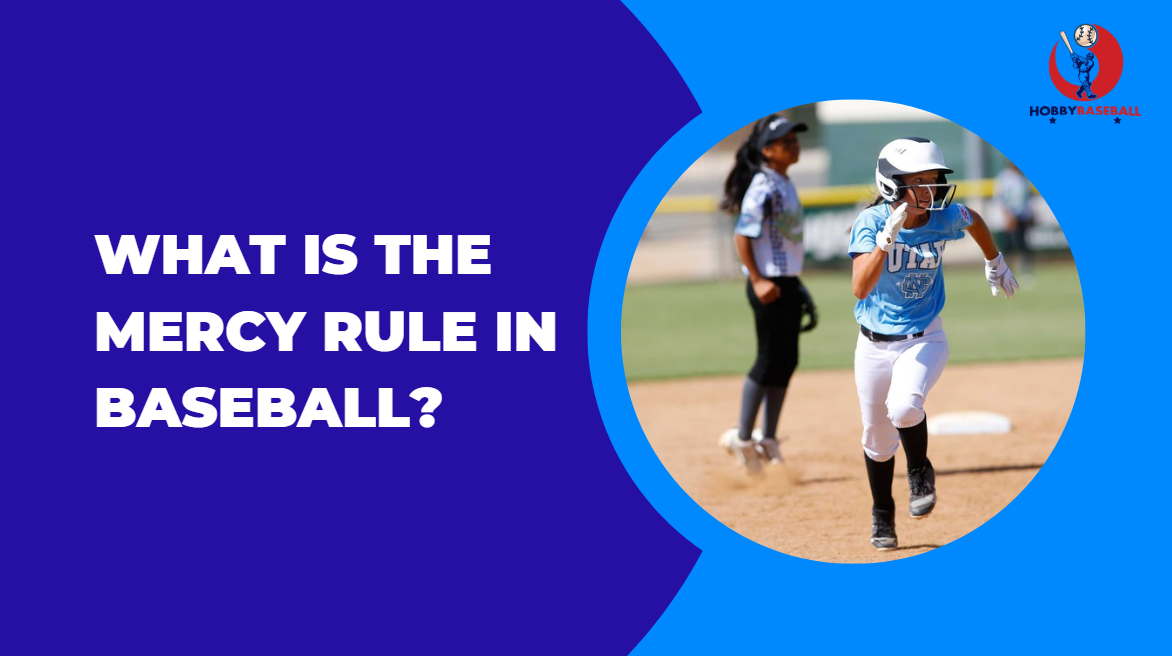Baseball is a game of skill, strategy, and sometimes, lopsided scores. But when one team dominates too heavily, games can become uncompetitive and unenjoyable. That’s where the Mercy Rule comes in. This rule helps prevent unnecessarily long and one-sided matches by ending the game early if a team has an insurmountable lead. But how does it work, and where is it applied? Let’s break it down.
What is the Mercy Rule?
The Mercy Rule, also known as the “Run Rule,” is a regulation in baseball that ends a game early when one team has an overwhelming lead after a certain number of innings. The primary purpose of this rule is to prevent unnecessary embarrassment for the losing team and to save time.
How Does the Mercy Rule Work?
The Mercy Rule is applied differently depending on the level of play, but generally, it follows these conditions:
- If a team is ahead by 10 runs or more after a certain number of innings, the game ends early.
- The rule is usually enforced after five innings in a standard seven-inning game.
- In some leagues, the rule applies after seven innings in a nine-inning game.
Where is the Mercy Rule Used?
The Mercy Rule is commonly found in youth baseball, high school baseball, college baseball, and some international competitions. However, it is not used in Major League Baseball (MLB).
1. Youth Baseball
Most Little League and travel baseball organizations use the Mercy Rule to ensure a fun and fair playing experience for young athletes.
2. High School Baseball
High school baseball often applies the Mercy Rule if a team is leading by 10 runs after five innings or 15 runs after three innings.
3. College Baseball
In NCAA baseball, the Mercy Rule is typically applied during non-conference games and conference tournaments but is not used in regular conference play.
4. International Baseball
In international tournaments like the World Baseball Classic (WBC), a 10-run rule is applied after seven innings, and a 15-run rule applies after five innings.
5. Professional Baseball (MLB)
Major League Baseball does not have a Mercy Rule, as professional teams are expected to compete at the highest level, regardless of the score.
Why is the Mercy Rule Important?
The Mercy Rule serves several important purposes:
- Protects young players from embarrassment: Losing by a large margin can be discouraging.
- Reduces risk of injuries: Continuing a game that is already decided increases the chances of unnecessary injuries.
- Saves time: Games that are out of reach end sooner, allowing schedules to stay on track.
- Keeps the game enjoyable: It prevents one-sided games from dragging on unnecessarily.
Arguments For and Against the Mercy Rule
Pros
✅ Encourages sportsmanship and respect for opponents.
✅ Keeps games competitive and engaging.
✅ Reduces fatigue and risk of injuries.
Cons
❌ Can be seen as “giving up” too early.
❌ Removes the opportunity for a historic comeback.
❌ Might not prepare young athletes for tougher competition.
Notable Games Affected by the Mercy Rule
Over the years, there have been several high-profile instances where the Mercy Rule ended games early, especially in youth tournaments and college baseball. While MLB does not implement this rule, many amateur leagues have benefited from it.
Does the Mercy Rule Exist in Other Sports?
Yes! Many other sports have similar rules:
- Softball: A Mercy Rule is used at most levels, including college and international play.
- Football (High School & Youth): A “running clock” rule is often used when a team leads by a large margin.
- Soccer (Youth & High School): Some leagues enforce goal limits to prevent lopsided results.
Conclusion
The Mercy Rule is an essential part of baseball at lower levels, helping maintain fairness, sportsmanship, and player safety. While it doesn’t exist in professional baseball, it remains a widely accepted rule in amateur and international play. Whether you’re a player, coach, or fan, understanding the Mercy Rule can give you a better appreciation of how baseball ensures competitiveness while maintaining respect for all participants.
FAQs
1. Why doesn’t MLB have a Mercy Rule?
MLB players are professionals, and teams are expected to play through any situation, no matter the score.
2. Does the Mercy Rule apply in the World Baseball Classic (WBC)?
Yes, in WBC, a 10-run rule applies after 7 innings, and a 15-run rule applies after 5 innings.
3. Can a team decline the Mercy Rule?
In some leagues, both teams can agree to continue playing despite the Mercy Rule conditions.
4. How does the Mercy Rule affect player stats?
If a game ends early, players have fewer opportunities to improve their statistics.
5. Is there a Mercy Rule in college baseball playoffs?
No, the Mercy Rule is typically not used in NCAA postseason play.
See More:







